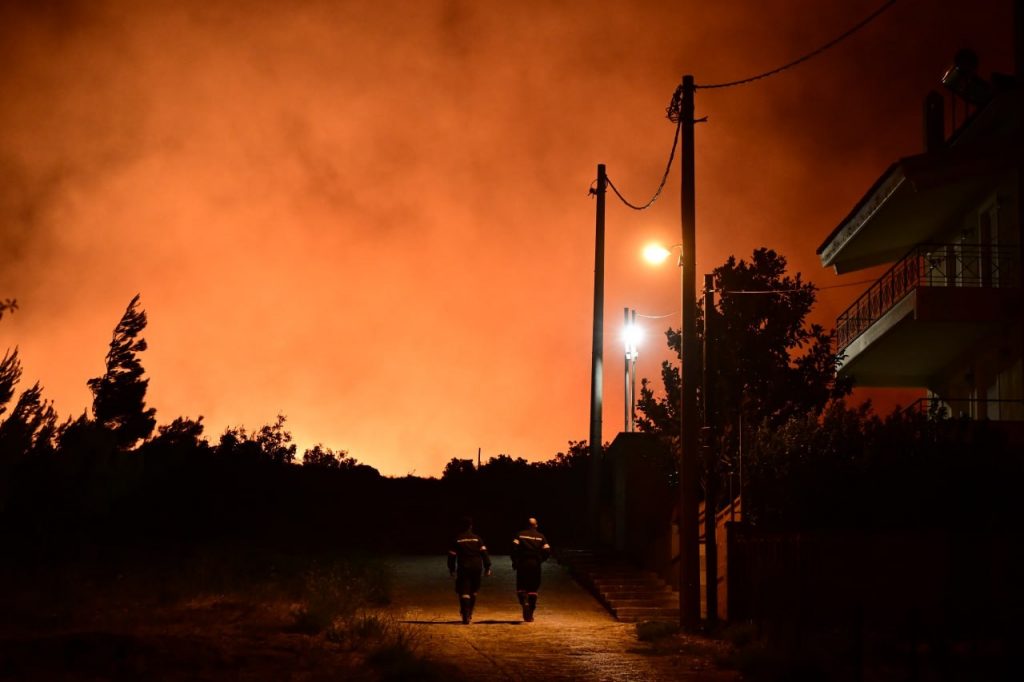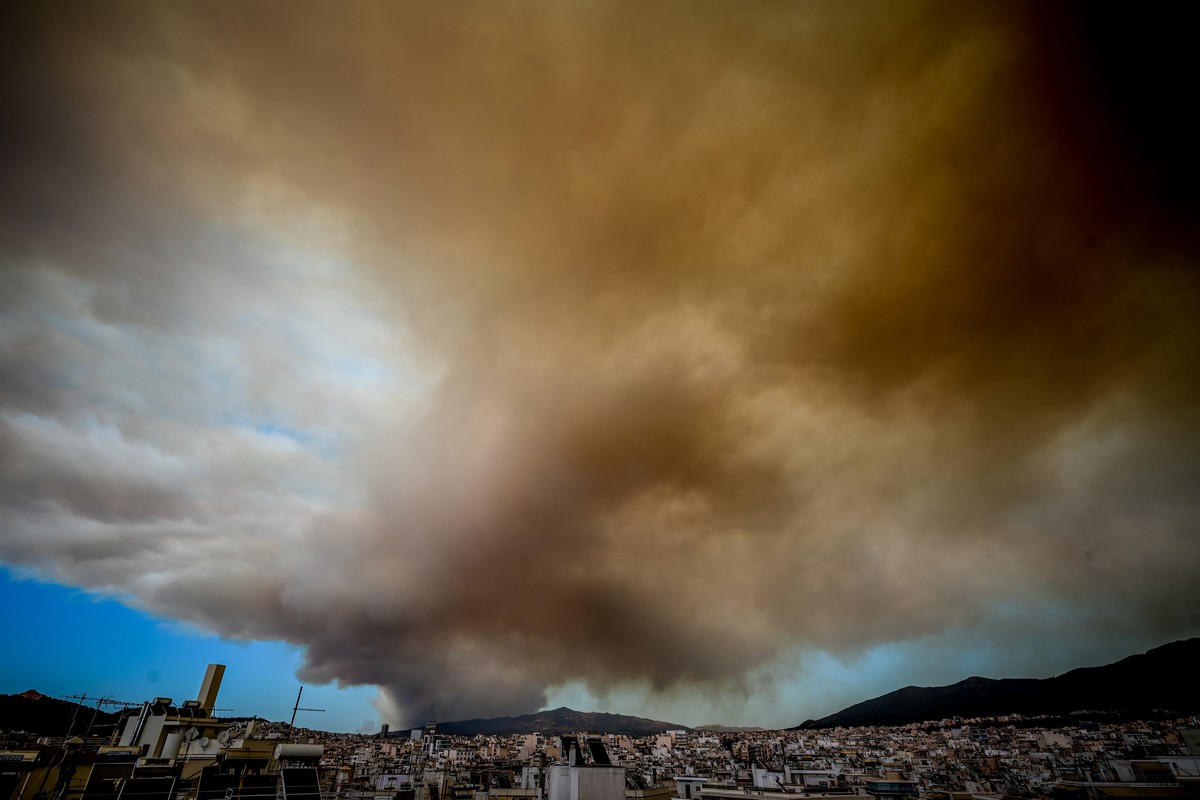A wildfire that ignited on Sunday afternoon in Varnavas, northeast of Athens, has rapidly intensified and is now spreading to Mt. Penteli. The fire has cast a vast smoke blanket over the greater Athens area, leading experts to caution individuals with respiratory conditions to take extra precautions.
In response, Greece’s National Public Health Organization (EODY) has issued guidelines to protect public health from the hazardous effects of smoke inhalation during the wildfire.
If conditions lead to heavy smoke exposure, residents are advised to leave the affected area if possible, until the situation improves. If evacuation is not feasible, it is recommended that citizens remain indoors as much as possible and take steps to maintain clean indoor air by following these guidelines:
• Keep windows and doors shut, use air conditioning with internal air recirculation, and ensure filters are well-maintained.
• Avoid smoking indoors.
• Refrain from using vacuum cleaners, both electric and conventional.
• If outdoor air is clear of smoke, ventilate indoor spaces by opening windows to refresh the air.
• Limit outdoor activities while smoke is present.
Additionally, EODY advises taking measures to avoid or minimize health impacts from smoke exposure:
• Refrain from physical exertion.
• Stay hydrated by drinking plenty of water and fluids, particularly during periods of heavy smoke.
• Seek immediate medical attention if you experience symptoms such as persistent coughing, difficulty breathing or wheezing, chest tightness or pain, rapid heartbeat, nausea, unusual fatigue, or dizziness, which could be related to excessive smoke exposure.
The health effects of inhaling particles from a fire can vary based on their composition, size, duration of exposure, atmospheric conditions, and individual health status.
Generally, exposure to smoke can cause eye and respiratory irritation, and can worsen pre-existing respiratory and cardiovascular conditions. Those at higher risk include individuals with chronic health issues, pregnant women, the elderly, and children.




